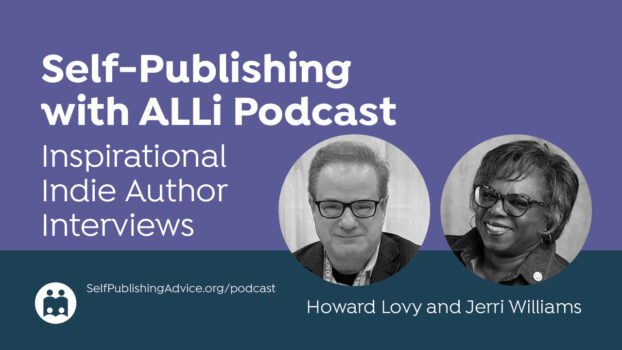For authors who use ‘price pulsing' (i.e. vary the price to stimulate sales) or discount their self-published books across multiple online retailers, ALLi recommends caution after several members recently reported receiving letters from Amazon's legal department when their books were priced lower on other sites.
When publishing on multiple platforms, some authors have in the past relied on Amazon's policy of automatic price-matching, particularly when advertising on a site such as Bookbub which requires a promotional price. Notifying Amazon that the price is lower elsewhere has often been enough to get Amazon to drop the price to the same level.
However, Amazon's Terms and Conditions have always stated that authors who publish on other platforms must not price their books lower elsewhere, and authors who do so are in breach. In the past, this rule hasn't been consistently enforced, but it seems that the policy is being tightened. There is now a clear risk for anyone in breach: Amazon will unpublish their books.
Case Studies
Two ALLi members share this alarming experience, which came about through no fault of their own.
 Author Jane Davis received a letter from Amazon's legal department after the price of one of her novels, These Fragile Things, was reduced on Smashwords in error.
Author Jane Davis received a letter from Amazon's legal department after the price of one of her novels, These Fragile Things, was reduced on Smashwords in error.
“According to our pricing policy, your book should be priced no higher than the list price on Amazon.com on any other sales channel for either the physical or digital edition of the book. Please adjust the list price for the above book(s) within the next 5 business days. If the price isn’t updated within 5 business days, we may remove the book(s) from the Kindle Store, at which point you will need to republish the book with an updated price.”
Jane had already been in contact with Smashwords about the issue when she received Amazon's email. Smashwords had accidently converted Jane's Sterling price into US dollars, price into sterling, effectively undercutting the Amazon price. Smashwords responded to her price-change request within 24 hours, but pointed out that they had no control over how quickly their third party distributors would respond. Jane updated Amazon, who, on receipt of copies of correspondence, were very understanding and advised that they would take no further action. Jane says:
“Like many other authors, I have been told that it's acceptable to rely on Amazon's price-matching policy, but I have always been wary of advice that recommends a breach in terms and conditions of a legal agreement. I would not deliberately jeopardise my relationship with Amazon as over 95% of my income comes from them. I believe that it is worth maintaining a presence on other platforms in order to increase my visibility, but if a conflict arose between the terms and conditions of those other platforms and Amazon's, I would withdraw from Smashwords and Kobo.”
 However, when Joe Cawley received a similarly worded email, he ignored it, thinking it was part of the automatic process that preceded price-matching. As a result, his book Even More Ketchup Than Salsa: The Final Dollop was unpublished. Since Amazon allows authors to publish their books again, albeit at a lower price, this was particularly inconvenient because it coincided with a burst of publicity that would have fuelled additional sales. Says Joe:
However, when Joe Cawley received a similarly worded email, he ignored it, thinking it was part of the automatic process that preceded price-matching. As a result, his book Even More Ketchup Than Salsa: The Final Dollop was unpublished. Since Amazon allows authors to publish their books again, albeit at a lower price, this was particularly inconvenient because it coincided with a burst of publicity that would have fuelled additional sales. Says Joe:
“I was under the impression that Amazon would just price-match (despite the unauthorised and unexpected price drop by Nook). The book was re-instated but only when I requested that Nook unpublish it. I use ebookpartnership.com to distribute to some channels. Through no fault of their own, they can't guarantee that those channels will make requested changes within a given time frame. It seems that Amazon are getting very strict on this pricing issue as I've since received another email regarding Google's price drop on the same title.”
Amazon is not the only ebook distribution channel to discount books without the prior consent of the author – and price drops are fine if they help you sell more books without denting your profit, but
- only Amazon insists on being the cheapest supplier as part of their terms and conditions
- only Amazon will drop your book if it's cheaper on a different store
The simple answer for authors (and one that may be part of Amazon's plan) would be to drop using other distributors to avoid the risk – but with anecdotal evidence of steadily increasing sales through other ebook retail sites, few authors would find that an acceptable solution.
ALLi's Advice re Amazon Price-matching
- Be vigilant: keep an eye on your books' prices wherever they are listed, as they may change without notice
- If you receive a warning letter from Amazon, respond straight away to resolve the issue
- Even if it's not your fault that the price difference has arisen, you still need to act fast to ensure that your book is not delisted
- As when dealing with bank managers (!), the more promptly you tackle the issue with Amazon, the more likely you are to avert a crisis
- If you're planning to use price-matching for special promotions, e.g. for BookBub listings, make sure you reduce your prices on Amazon first
- Bear in mind that you can change your book's price yourself on Amazon via the KDP dashboard at any time, whether or not it is in KDP Select – ultimately, you are responsible for your book's pricing – that's one of the joys of self-publishing!
Finally, we should make it clear that this post is not a criticism of any only book distribution service. Those mentioned above are simply adhering to the terms and conditions that wa as authors willingly sign up for when agreeing to use their services. As Jane and Joe will be the first to agree that Amazon, for example, offers so many benefits to the author, accounting for the majority of most self-published authors' sales, and offering us a simple-to-use service to reach a huge global audience, with no up-front charge. It's important to remember the benefits to keep a sense of perspective.
Have you had similar issues with Amazon price-matching? Please feel free to share your experience, advice and questions via the comments.





[…] lugares. Por ello, la compañía puede advertirnos y tomar medidas al respecto, como ha hecho en algún caso. No siempre depende de uno el precio en las diversas plataformas, ya que puede haber errores o […]
Excellent points Kevin, thanks!
Like Jane, I also received the exact same email from Amazon this year and realised I had forgotten to raise my book’s price on Smashwords after a 99p/99c promo. I responded to Amazon’s email, explained my mistake, changed the price on Smashwords, and emailed Smashwords to ask how long it might take for the changes to be reflected on various retailers’ sites. I got the same reply as Jane, that it varies. Apple were the fastest, changing within 24 hrs. Nook took 2-3 days.
Kevin, I haven’t checked Amazon’s terms of late, but I used to use a little trick with 35% and price matching to earn more money, and after a while they did threaten to take the book down due to price matching.
A few other tips to remember:
1) Smashwords still has agency pricing agreements with most retailers. If you are having serious issues with retailers reducing your prices on their sites and Amazon giving you trouble over it, it’s worth considering Smashwords as a distributor.
2) Don’t forget that the requirement to have the lowest price is ONLY for the 70% royalty rate on Amazon! If you find yourself in trouble – price was reduced too low on another site, and you cannot rapidly get it fixed, you can switch your ebook to the 35% rate on KDP. At 35%, there is no requirement about pricing, and the books can be cheaper on other sites without getting you in trouble.
3) Related to that – remember to drop to the 35% rate before attempting a permafree. Most writers do this anyway, because they drop the price to 99 cents on Amazon (which drops you to the 35% bracket) as part of the work to get a book permafree. But if you make a book free on B&N and Kobo and Apple – but keep it $2.99 in the 70% bracket on Amazon – you ARE in violation of the KDP terms, and they can pull the book, even cancel your account if they want. Be careful.
The advice also needs to be noted in relation to deliberate price increases. This week, I am increasing my e-book prices. I have made sure I make the increases with Amazon last, and that all Smashwords distributors have increased their prices first (if that makes sense).
Very good article. I had this happen twice last year. The terms are clearly stated on Amazon’s site for the self publisher though I’ve noticed authors do seem to push with these price changes. Last year I lowered the price on one of my books and I did get an email from Amazon with a warning to fix it within 5 days or the book would be removed. I did change the price accordingly and emailed Amazon and they said they would check, then no further action as long as the price is in agreement with their terms.
Another book I listed with Smashwords was for some unknown reason free on the Barnes and Noble UK store. I received another email from Amazon to fix it or the book would be unpublished. I tried for a year but the matter was never resolved by smashwords (I kept Amazon apprised of my efforts to resolve it) I finally unpublished the book for the B&N channel in the smashwords store. Smashwords to this day hasn’t received a response from B&N about why this happened.
Since I choose to do business with Amazon, I am cognizant of following their terms and conditions, just like you would with any business you deal with. I’m not sure why my book got flagged, but maybe they randomly check titles to see if publishers are in compliance.